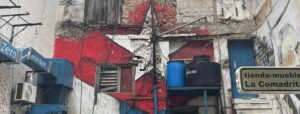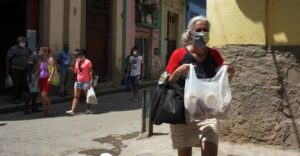Last week former President Jimmy Carter traveled to Cuba where he pressed diligently on sensitive matters of bilateral interest, including the imprisonment of USAID subcontractor, Alan Gross. Unfortunately, two days after his return the State Department made an announcement that greatly detracted from the progress made by Carter on his visit.
Former President Jimmy Carter returned from a brief but very useful visit to Cuba last Wednesday. While there,Carter who did more to open up U.S.-Cuban relations than any other President, met with both Castro brothers, Cuban dissidents, the Catholic Church, Havana’s Jewish community, the imprisoned USAID subcontractor Alan Gross, and with family members of the “Cuban Five” who are imprisoned in the United States on espionage charges. Carter ended the visit with a press conference in which he called for an end to the U.S. embargo, the release of political prisoners in Cuba, a pardon for Alan Gross, and the removal of Cuba from the State Department’s list of terrorist countries. He announced his intention to meet with President Obama and with Secretary of State Hilary Clinton on his return to brief them on his trip and has also released this trip report.
Carter insisted he wasn’t speaking on behalf of Washington, but his visit was read in Cuba as an attempt to open up channels for communication and contact. Carter’s productive trip signified a push toward improving relations between the two countries.
However, just two days after Carter’s return, the Administration took a step backwards. The State Department announced its intention to obligate $20 million to support very controversial “human rights and civil society” programs in Cuba. The State Department obligated funds under Section 109 of the Helms-Burton legislation, the stated purpose of which is to support groups on the island intent on regime change. So if Carter was signaling the possibilities of better relations, the State Department did just the opposite. Rather than opting for productive dialogue, the U.S. government’s announcement showed that hardliners still have a seat at the table in Washington policy making. The State Department’s timing also suspiciously looks like a gambit to undercut efforts to improve relations.
In a further twist of fate, it is these very “regime change” programs that landed U.S. citizen Alan Gross in jail well over a year ago, a point which has thrown a wrench in U.S.-Cuba relations. Part of the problem with the controversial “regime change” programs is that they actually put the people who work on them at risk. When he was apprehended in Cuba, Alan Gross was working for a private contractor that received millions of dollars from that Section 109 account. Under his subcontract, Gross was delivering satellite-linked communications equipment brought into the country without a customs declaration. According to the State Department, Gross was officially delivering equipment to Jewish groups on the island so that they could communicate with other Jewish communities abroad. Even though the U.S. government justifies these programs as necessary to help build civil society capacity in Cuba, the Havana Jewish community leaders, with whom Carter met, already have internet connections in the community center, and an active B’nai B’rith International Chapter. Those groups all denied any substantive contact with Gross.
These programs funded under Section 109 should be canceled – they’ve been plagued by scandals and allegations of patronage since they began in the 1990s, and most of the programs do more to provoke the Cuban government than they do to promote democracy. In times of budget constraint it is worth recognizing these programs are quite expensive as well and the U.S. government has spent more than $150 million on these programs over the last decade. The few effective programs – humanitarian support for the families of prisoners, some non-political training programs for journalists, and others – could be carried out under other U.S. government auspices and without the taint of the regime-change philosophy that lurks behind Section 109 funding. These concerns were underscored by Senate Foreign Relations Committee Chairman John Kerry (D-MA) who immediately announced that he would put a hold on spending the funds until a “full review” of the program has been conducted.
Ending or substantially modifying the program might signal to Cuba that the Obama Administration is serious about a new approach to Cuba, one that doesn’t take “regime change” as its starting point. And in the context of such a shift the likelihood that Alan Gross would be pardoned or paroled by Cuban authorities would increase.
Rather than canceling the program, though, the State Department announced new funding for the program only days after Carter’s trip to Cuba and his public call for Gross to be released.
The Gross issue has stalled progress in other areas of U.S.-Cuban relations. In January the Obama Administration issued new rules to ease restrictions on travel to Cuba but those rules have still not been implemented, and it’s widely rumored that Gross’ continued detention is at least part of what’s holding them up.
It’s unfortunate that, at a moment when Carter’s visit worked to open some space for movement in U.S.-Cuban relations, the State Department announcement of new funding for “Cuba democracy” programs appears to be pulling in the opposite direction.
.


